| FACULTY INVESTIGATORS |
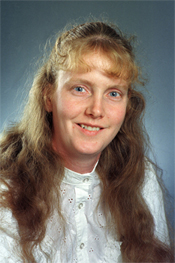 Elisa
Barney Smith Elisa
Barney Smith
Associate Professor
Department of Electrical and Computer Engineering
Boise State University
Boise, ID 83725
http://coen.boisestate.edu/EBarneySmith/
Dr. Elisa Barney Smith received a B.S. in
Computer Science from Rensselaer Polytechnic Institute, Troy, NY. She
received the M.S. and Ph.D. degrees in Electrical, Computer and Systems
Engineering in 1989 and 1998, respectively, also from RPI. From 1989 to
1993 she worked as an engineer at the Naval Undersea Warfare Center in
New London, CT. In 1993, she worked at the NATO SACLANT Centre in
LaSpezia, Italy. Her work at both NUWC and SACLANT Centre involved
designing automatic target classification algorithms and systems that
utilize passive acoustic data. She joined the Electrical and Computer
Engineering faculty at Boise State University in September 1999.
Elisa's research focuses on image processing and pattern recognition.
Much of that work is concerned with modeling and analysis of image
degradations introduced during printing and scanning processes. She
also has several projects related to image registration of document
images as well as of astronomical and biomedical images. In 2003 she
was awarded an NSF CAREER grant for her research on Document Image
Degradations, and she has served as PI on several other projects
related to image processing.
|
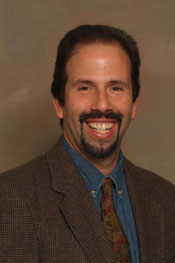 Christopher Borick Christopher Borick
Associate Professor
Department of Political Science
Muhlenberg College
Allentown, PA
|
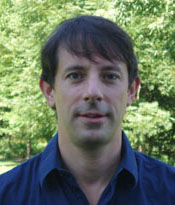 Daniel Lopresti Daniel Lopresti
Associate Professor
Department of Computer Science and Engineering
Lehigh University
19 Memorial Drive West
Bethlehem, PA 18015
http://www.cse.lehigh.edu/~lopresti
Dan
Lopresti
received his bachelor's degree from Dartmouth College in 1982 and his
Ph.D. in computer science from Princeton University in 1987. He served
on the faculty of the Computer Science Department at Brown University,
then went on to help found the Matsushita Information Technology
Laboratory in Princeton, and later served on the research staff at Bell
Labs in Murray Hill, NJ. In 2003, Dan joined the Computer Science and
Engineering Department at Lehigh where he leads a group examining
fundamental research questions in pattern recognition, bioinformatics,
and cybersecurity.
Since
2006, Dan
been studying issues concerning electronic voting in Pennsylvania and
around the country. He has met with state and local officials, lectured
publicly on numerous occasions, and also appeared on radio and TV. Dan
serves as an expert witness in a pending state-wide lawsuit challenging
the use of paperless electronic voting machines in Pennsylvania. A
number of students at Lehigh have worked with him on various aspects of
e-voting, including conducting detailed studies of machines they have
acquired through government surplus auctions. Dan is co-principal
investigator on an National Science Foundation grant funded
though their CyberTrust program which is titled “Following the Paper
Trail: Reliable Processing of Voting Records for Trustworthy
Elections.” |
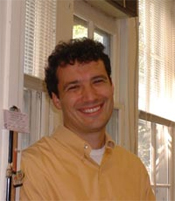 Ziad Munson Ziad Munson
Assistant Professor
Department of Sociology and Anthropology
Lehigh University
681 Taylor Street
Bethlehem, PA 18015
http://www.lehigh.edu/~zim2/zim2.html
|
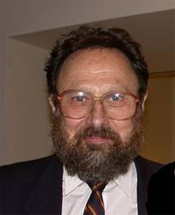 George Nagy George Nagy
Professor
Department of Electrical, Computer, and Systems Engineering
6020 Johnsson Engineering Center
Rensselaer Polytechnic Institute
Troy, NY 12180-3590
http://www.ecse.rpi.edu/~nagy/
George Nagy received the B.Eng. and M.Eng.
degrees from McGill University, and the PhD in Electrical Engineering
from Cornell University in 1962 (on neural networks). He was a member
of the research staff at the IBM T.J. Watson Research Center in
Yorktown Heights. then Professor of Computer Science at the University
of Nebraska - Lincoln. Since 1985 he has been Professor of Computer
Engineering at Rensselaer Polytechnic Institute. He has held a dozen
visiting appointments in six countries, advised twenty-two doctoral
students, and published over 300 survey and research papers.
His primary research interest is the development of systems that
improve with use for visual pattern recognition, document image
analysis, web-based ontologies, and character recognition. As a
co-principal investigator of a National Science Foundation CyberTrust
grant titled "Following the Paper Trail: Reliable Processing of Voting
Records for Trustworthy Elections," he is conducting research on test
data generation, whole-ballot mark recognition, bias-free mark
classification, and camera-based ballot counting devices.
|